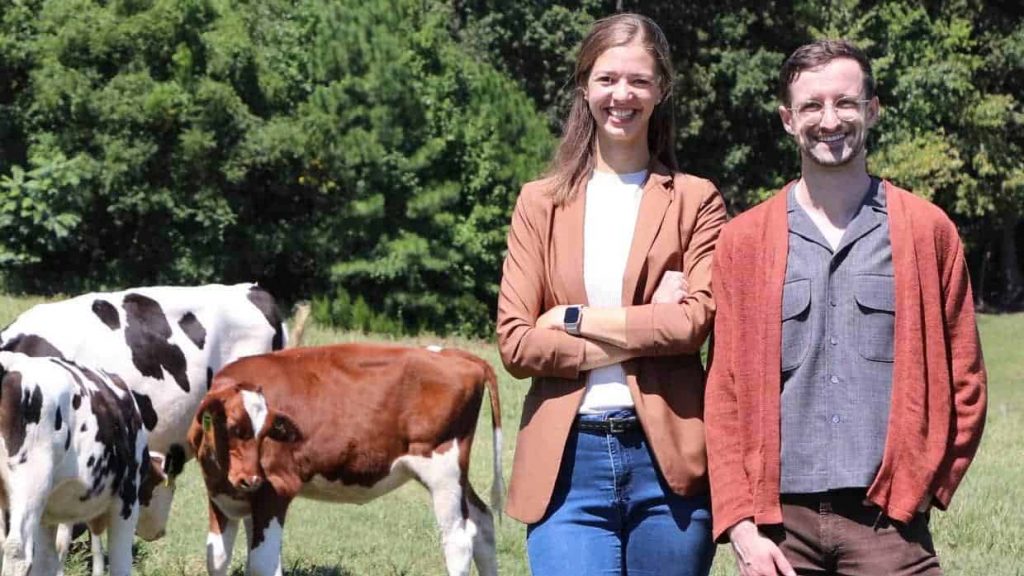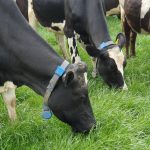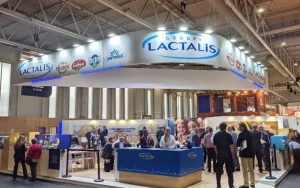
More milk, less warming: that’s the promise of a probiotic formula being developed for cows.
Two US-based researchers have discovered natural enzymes that reduce the amount of planet-heating methane burped by livestock.
The pair estimate the enzymes, delivered in a probiotic supplement, could reduce cows’ methane by at least 80%.
Since methane from farming is New Zealand’s trickiest climate problem, the discovery excited an agricultural investment group – which put $4.1 million towards the next trials of the formula.
Kathryn Polkoff and Scott Collins tested the impact of the enzyme in an artificial rumen. Next, they’ll move to real animals – evaluating different ways to deliver the supplement and measuring what happens to methane emissions, feed intake and milk production.
Polkoff is confident the enzymes will have a significant impact on the greenhouse footprint of the livestock.
“We know that at minimum these enzymes can eliminate 80% of methane, but our ultimate target is actually complete methane elimination”.
But the pair want to do more than just reduce emissions. They hope their formula will offer “a meaningful improvement in animal health”. The cows also could produce more milk and meat. Both gains could boost a farm’s productivity and profitability.
The researchers expect cows will only need to take the supplement once a day – meaning dairy farmers could deliver it in the milking shed.
Polkoff didn’t say when the trial was likely to be completed, or when the probiotic product might be available to farms. But the research team will be working at speed.
“The goal is to have this technology in farmers’ hands as soon as possible,” she said. “We recognise the urgent need for a technology like ours and are doing everything we can to accelerate the path to market.”
AgriZero – a partnership between the Government and businesses including Fonterra, Silver Fern Farms and Synlait – was the biggest investor in Polkoff and Collins’ start-up, Hoofprint Biome.
Wayne McNee, the executive director of AgriZero, said the research had the potential to be a real breakthrough. Agricultural emissions are challenging to reduce, he added.
Using enzymes was a “novel” approach to target methane, McNee said. “The probiotic should make the enzymes much more effective. That’s the goal and it’s certainly the case in the laboratory.”
Although the enzyme research is at a relatively early stage, AgriZero’s investment will allow Kiwi farmers to be “at the forefront of its [the product’s] future success”, McNee said.
If the next round of trials are successful, Hoofprint will undertake further research on New Zealand farms. That will ensure that the product would receive regulatory approval faster, McNee said.
AgriZero invests in companies developing technologies that could allow farming to ambitiously reduce its climate impact.
“Farmers will need at least two or three proven tools and technologies in widespread use by 2030,” McNee said. “That’s what we’re working to deliver.”



















